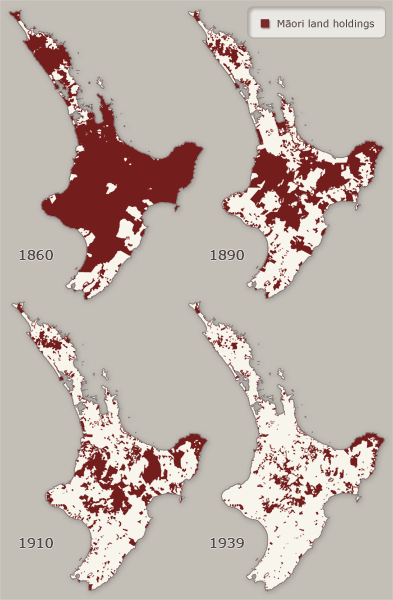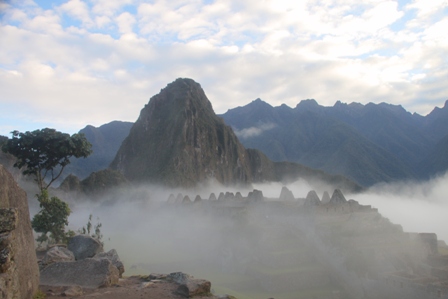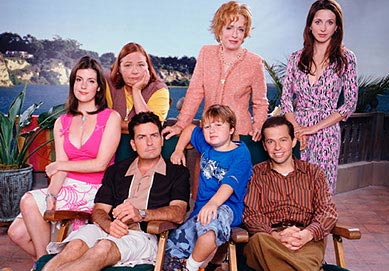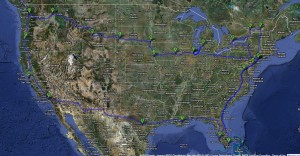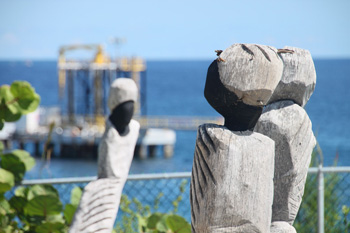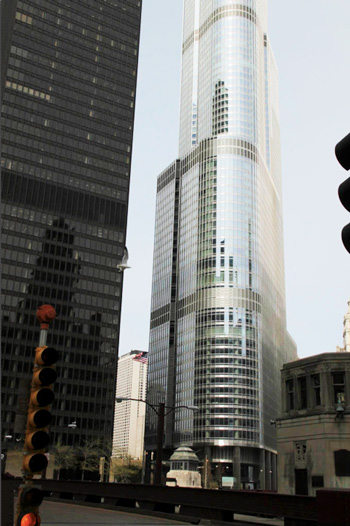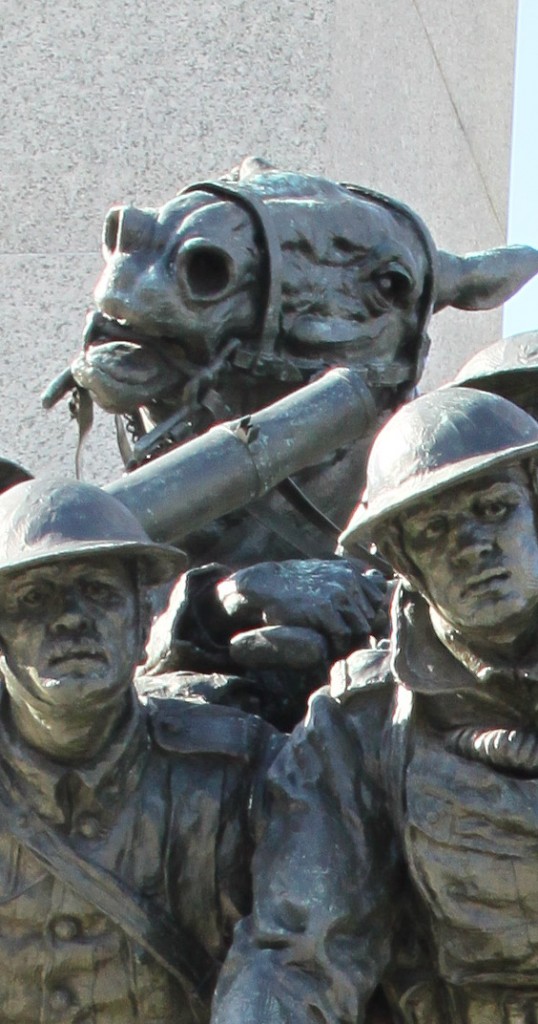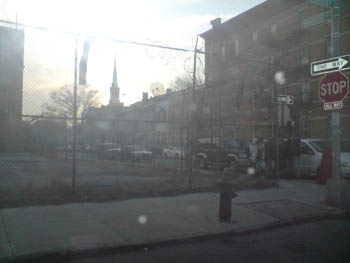It’s snowing again. It’s falling softly tonight, in big gentle flakes. Everything in the yard has a little snowy hat on nearly two feet tall. The snow’s piled up in the streets. With the cold, cars were conking out in the road, and walking home last night it was impossible to tell where the pavement ended and the road began.
Something happens though when it snows that I’ve never really seen in Britain: instead of just leaving the snow in the street, householders come out of their homes and shovel it, making the sidewalk snow-free and much safer to walk on.
I told a New Yorker friend how I felt this seems a touching gesture of community spirit; she replied that’s what she had thought, for a long time. Needless to say I like the idea of people each playing their small part in achieving a larger communal goal of the common good.
And it’s impressive! It’s impressive to see that people have all got out and pitched-in and cleared the sidewalks. As my housemate commented, you want to say “Well done Bushwick, well done Ridgewood!”.
But in fact, and this is even more surprising to me (coming from Britain), New Yorkers are legally obliged to shovel snow that lands on the sidewalk outside their house (and I’m sure the shovel manufacturers love that!). This makes sense of course, but it just takes away some of the sentimental appeal…
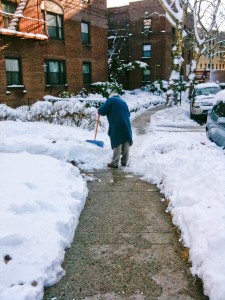
Incredibly, according to the New York Times, they’re legally obliged to do this during daytime “within 4 hours” of the snowfall ending! Which would seem to put some pressure on people, especially older people. Equally I can’t imagine many students getting it together to get out of bed and shovel before the snow police come round! I saw one old man (pictured) who was obviously behind in his shovelling efforts. I stepped around him, saying hello. If I had known he was being legally obliged to shovel his sidewalk and wasn’t just doing it to be community-spirited, I would have taken the shovel off of him and asked him to put the kettle on while I did it myself.
America – and I dare say Americans – have a strange mix of impulses; in this case, the desire to be community-spirited, tied to a legal obligation to be so. It makes sense that mobilising the person-power of every householder to shovel snow makes sidewalks clear a lot quicker than any army of city workers that could be realistically mustered; so in this sense an “individualistic” solution works. But the way the individualistic effort is socially and communally enforced intrigued me. In a country where a large number of people strongly reject government obliging them to do things and insist on individual voluntary action instead, I wonder whether this city statute doesn’t in some ways manage to appeal to both an individualistic sensibility and a community one.
Individualists are unlikely to challenge it because what could be more obviously selfish and un-community-spirited than refusing to pull one’s own weight?
People more used to collective government action can hardly fault it either; it gets the job done. And neither they nor the individualists need worry about a burden on the tax-payer, because there isn’t one! Not to their wallet anyway (initial capital purchase of shovel aside….).
There are problems of course; not least the “equality” issue that the old man had; his ability to complete the task was not the same as other’s.
But could this be a template for collective action on other issues? Litter? Homelessness? Climate change??
 I find it amazing that the city has got away with people tolerating this prescriptive and burdensome ordinance, and presumably they do so because the problem is undeniable, pressing, universal, immediately obvious and tangible, and everyone has a degree of shared interest in its resolution.
I find it amazing that the city has got away with people tolerating this prescriptive and burdensome ordinance, and presumably they do so because the problem is undeniable, pressing, universal, immediately obvious and tangible, and everyone has a degree of shared interest in its resolution.
Sadly the same cannot be said for homelessness and certainly not for climate change. Not because they are not important – but because people just don’t feel aware of them in the same way. Litter almost gets up there, but most people are clearly able to tolerate a lot of litter (certainly around here in Bushwick) before being provoked into individual action.
If only awareness of important pressing issues could be as obvious as the weather……. Oh, wait: it will be as obvious as the weather – literally – when climate change really bites. It will be the weather! And it will not only bring storms and floods and droughts and hurricanes to America but global economic infra-structural breakdown. But by then, of course, without a massive change in awareness, prevention will be too late.
